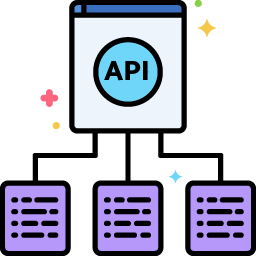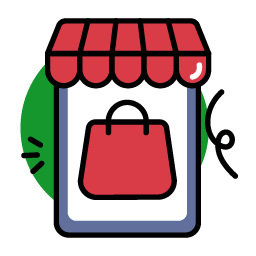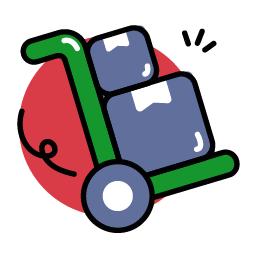Introduction
If you’re running a business and thinking of selling online, having a website is essential. Whether you’re selling products, offering services, or even subscriptions, an online store can help you reach more customers and grow your business. However, just building a website is only part of the equation. It’s more about making sure everything works properly behind the scenes. This is where an e-commerce developer steps in to help you set up a platform that actually works for you.
But what does an e-commerce developer do exactly? And how can they help your business succeed online? Let’s take a closer look at what an e-commerce developer does, some of the essential features your website should have, and how custom software can help your business run smoothly.
What Does E-Commerce Development Really Mean?
When we talk about e-commerce development, we’re referring to the whole process of building and managing your online store. This includes not just creating a website but making sure that everything works together as one smooth system. For example, your inventory, customer data, and sales process all need to be connected. A good system is secure, easy to use, and works well across different devices like desktops, mobiles, and tablets.
What Does an E-Commerce Developer Actually Do?
An e-commerce developer is someone who helps build, customise, and maintain your online store. They handle everything from setting up your website to making sure payments are secure. Here are some of the tasks they will take care of:

Build Your Store
Creating a store that looks great and works well for your business. They make sure the website reflects your brand and meets your business needs.

User Experience
Making sure the website is easy to navigate so customers can find what they need and complete purchases quickly.

Setting Up Payment Systems
They’ll set up secure payment methods like PayPal, Stripe, or card payments so your customers can pay with confidence.

Mobile Optimisation
With more people shopping on their phones, they’ll ensure the site is mobile-friendly.

Connecting Software
If you already use tools like stock management or customer relationship systems, they’ll make sure everything integrates smoothly.
Without a skilled e-commerce developer, your website might not work as well as it should. It could be slow, confusing for customers, or unable to handle transactions properly, leading to lost sales and unhappy customers.
What Should a Good E-Commerce Platform Have?

When it comes to running an online store, just having a website that looks nice isn’t enough. Whether you’re a small local business or a large international company, the key to success lies in how well your site functions. A great e-commerce platform will make the shopping experience smooth and easy for your customers, while also helping you run your business more efficiently.
No matter what products you’re selling, whether it’s clothes, gadgets, food, or services, you need a platform that can meet your needs and grow with you. Below are some important features that every good e-commerce website should have:
Product Management
You need to easily add, update, and organise your products. Your customers should be able to find what they want quickly, so features like product descriptions, pricing, images, and categories should be simple to manage.

Smooth Checkout Process
The checkout process should be quick and easy. If it’s too complicated or slow, customers will likely abandon their carts and leave your site without buying.

Payment Gateway
You’ll need secure, reliable ways for customers to pay for their items. This could be PayPal, Stripe, or another well-known payment processor. A good e-commerce developer will make sure it’s set up properly.

Mobile Optimisation
With so many people shopping on their phones now, your website needs to work perfectly on mobile. A good mobile design ensures customers can shop anywhere, anytime.

Stock and Order Management
A good system keeps track of your stock so you don’t sell products you don’t have. It helps you avoid running out of stock and ensures that orders can be processed smoothly.

Custom E-Commerce Solutions vs Off-the-Shelf Platforms
When you start your online store, you might consider platforms like Shopify, WooCommerce, or Magento. These come with ready-made templates, but sometimes they aren’t flexible enough for businesses with specific needs. A custom e-commerce solution is designed just for you, which means you get a platform tailored exactly to your business.
What’s the Problem with Off-the-Shelf Platforms?
While off-the-shelf platforms are easy to use and get up and running quickly, there are a few things they can’t do:
- They don’t offer as much customisation, so your website may look similar to others.
- You’ll likely have to pay for extra add-ons or subscriptions.
- They may not work perfectly with the other software your business uses, like your inventory system.
Custom E-Commerce Store
A custom e-commerce solution means everything is designed to fit your business perfectly. Unlike off-the-shelf platforms, where you have to work within their limits, a bespoke platform ensures that all parts of your online store function seamlessly together.
Building a Custom E-Commerce Store from the Ground Up
When developing a custom e-commerce store, the shop front-end and inventory management system are built at the same time. This means that as your website takes shape, so does the system that keeps track of your stock, manages your customers, automates marketing emails etc. There’s no need for third-party tools or to worry about compatibility issues; everything is designed to work as one.
For example, when a customer makes a purchase, the stock levels update instantly, and reordering can be automated based on demand. Payment gateways, customer accounts, and delivery tracking can all be fully integrated, ensuring a smooth process from browsing to checkout. With this approach, you get a tailored system that grows with your business rather than one that needs constant workarounds.
What If You Already Have an Online Store?
If you already have an online store, adding custom software can really improve things. Here’s how:
- Better Efficiency: Custom software can automate tasks like stock management or order processing, saving you time and reducing the chance of mistakes.
- Improved Customer Experience: With features like personalised product recommendations or an easy-to-use customer account system, your customers will have a much better shopping experience.
- All your Operations in One Place: Custom software can tie together everything from sales data to customer information, so you don’t have to use different systems for different tasks.
Case Study: Smart Home Charge (SHC)
Smart Home Charge installs electric vehicle chargers. They already had a website built by a web development company and a separate software system for managing bookings and generating quotes. This software, developed by BSPOKE Software, was originally created for a related company under the same ownership. However, because the two systems weren’t linked, staff had to manually enter information from the website into the software system.
To streamline operations, our software team worked on the back-end while our web developer handled the front-end. We built a connection between the two systems, allowing them to communicate seamlessly. As a result, Smart Home Charge could automate quotes, schedule appointments, update sales data in real-time, and accept online payments. All of this was achieved within a software system originally built for a sister company, saving SHC both time and money.
Why Work with BSPOKE Software?
At BSPOKE Software, we specialise in creating custom solutions for businesses that want to grow online. Whether you need a new e-commerce platform or want to improve an existing one, we can help. We’ll work closely with you to make sure the system suits your business needs. If you need a full-service solution, we can handle everything from front-end to back-end.
Can We Work with Your Developer?
If you already have a web developer, no worries! We can collaborate with them to connect your e-commerce website to your new custom software system integrating all the necessary back-end functions with your existing site.
Take Your E-Commerce Business to the Next Level
If you’re ready to take your online store further, get in touch with us. Whether you’re looking to build a new e-commerce platform or improve an existing one, we’ve got the expertise to help your business grow. Fill in our contact form, and let us know about your business and your e-commerce and/or software requirements.
An Aside: What Happens After Your E-Commerce Website Is Ready?
Building your e-commerce website is just the beginning. You also need to make sure people can find your store. Whether you’ve been in business for a while or you’re just starting, getting traffic to your site is essential. There are several ways you can do this:

Search Engine Optimisation (SEO)
SEO helps your site rank higher on search engines like Google. By using the right keywords and improving your site’s structure, you can attract visitors without paying for ads.
Email Marketing
Email campaigns can bring customers back to your store by offering them exclusive deals or updates. Building an email list is an excellent way to keep your customers informed.


Paid Advertising (PPC)
Paid ads, like Google Ads or Facebook Ads, can help you reach customers quickly. You only pay when someone clicks on your ad.
Social Media Marketing
Platforms like Facebook, Instagram, and Twitter can be powerful tools for promoting your store. Share regular posts and engage with your audience to drive traffic to your site.


Content Marketing
By writing helpful blog posts or creating product guides, you can improve your SEO and show your customers that you know what you’re talking about. This will encourage them to trust your brand and visit your website.

